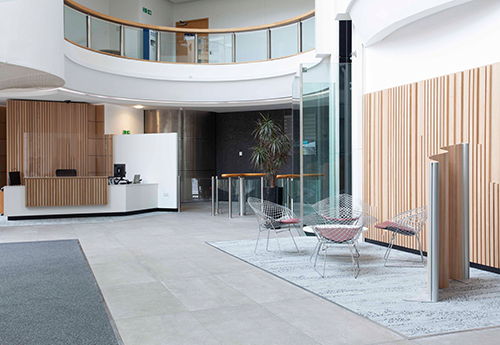Avison Young’s commercial real estate blog
- Research
 World Economic Forum, Davos 2024: Key Insights for the Commercial Real Estate IndustryJanuary 31, 2024
World Economic Forum, Davos 2024: Key Insights for the Commercial Real Estate IndustryJanuary 31, 2024 - Research
 Breakthrough, agreement, and funding futures: COP28’s impacts on climate risk resilience and CREDecember 22, 2023
Breakthrough, agreement, and funding futures: COP28’s impacts on climate risk resilience and CREDecember 22, 2023 - Research
 We will emerge from the trough: current market climates and outlooks on office.August 22, 2023
We will emerge from the trough: current market climates and outlooks on office.August 22, 2023 - Research
 Peak uncertainty into peak opportunity: The most challenging and rewarding years we will ever seeJuly 21, 2023
Peak uncertainty into peak opportunity: The most challenging and rewarding years we will ever seeJuly 21, 2023 - Research
 Why we can’t just have nice thingsMarch 28, 2023
Why we can’t just have nice thingsMarch 28, 2023 - Research
 Banking sector stress elevates real estate uncertaintyMarch 22, 2023
Banking sector stress elevates real estate uncertaintyMarch 22, 2023 - Research
 Exploring new climate themes, policy, and progressNovember 7, 2022
Exploring new climate themes, policy, and progressNovember 7, 2022 - Research
 UK service charge increases – where can occupiers save now and where could additional costs bring added value?August 24, 2022
UK service charge increases – where can occupiers save now and where could additional costs bring added value?August 24, 2022 - Research
 For greater workplace success, build inclusive team cultures and champion your LGBTQ+ colleaguesJune 30, 2022
For greater workplace success, build inclusive team cultures and champion your LGBTQ+ colleaguesJune 30, 2022 - Research
 Pause with purposeJune 9, 2022
Pause with purposeJune 9, 2022 - Research
 World Economic Forum, Davos 2022: That’s a wrap!May 29, 2022
World Economic Forum, Davos 2022: That’s a wrap!May 29, 2022 - Research
 Women of Influence: 2022 Globe St. honorees share lessons in leadership, applicable for allMay 27, 2022
Women of Influence: 2022 Globe St. honorees share lessons in leadership, applicable for allMay 27, 2022 - Research
 World Economic Forum, Davos 2022: Driving diversity, equity & inclusion for thriving communitiesMay 26, 2022
World Economic Forum, Davos 2022: Driving diversity, equity & inclusion for thriving communitiesMay 26, 2022 - Research
 World Economic Forum, Davos 2022: Staying at home?May 25, 2022
World Economic Forum, Davos 2022: Staying at home?May 25, 2022 - Research
 World Economic Forum, Davos 2022: A focus on the environmentMay 24, 2022
World Economic Forum, Davos 2022: A focus on the environmentMay 24, 2022 - Research
 World Economic Forum, Davos 2022: Off and running!May 23, 2022
World Economic Forum, Davos 2022: Off and running!May 23, 2022 - Research
 Invest for our planet: learning about the importance of increasing environmental value for your property or portfolioMay 5, 2022
Invest for our planet: learning about the importance of increasing environmental value for your property or portfolioMay 5, 2022 - Research
 UK utility costs are on the rise: Three ways occupiers can act today to lower energy consumptionApril 11, 2022
UK utility costs are on the rise: Three ways occupiers can act today to lower energy consumptionApril 11, 2022 - Research
 Operating at the edge of your skillset: 5 lessons to build impactful careers from a conversation with CRE pioneer Gwendolyn Hatten ButlerMarch 15, 2022
Operating at the edge of your skillset: 5 lessons to build impactful careers from a conversation with CRE pioneer Gwendolyn Hatten ButlerMarch 15, 2022 - Research
 #BreakTheBias: Celebrating women’s advancements, and 8 ways we all can help in the fight against continued bias in the workplaceMarch 14, 2022
#BreakTheBias: Celebrating women’s advancements, and 8 ways we all can help in the fight against continued bias in the workplaceMarch 14, 2022 - Research
 World Economic Forum feature: a call to decarbonize the built environmentJanuary 19, 2022
World Economic Forum feature: a call to decarbonize the built environmentJanuary 19, 2022 - Research
 Good COP or bad COP: what happens now will make every differenceNovember 22, 2021
Good COP or bad COP: what happens now will make every differenceNovember 22, 2021 - Research
 Reflections from week one of COP26: can we meet this moment with something more powerful than words and intentions – with critical, meaningful, and deeply collaborative action?November 10, 2021
Reflections from week one of COP26: can we meet this moment with something more powerful than words and intentions – with critical, meaningful, and deeply collaborative action?November 10, 2021 - Research
 Searching for value in today’s property marketsOctober 13, 2021
Searching for value in today’s property marketsOctober 13, 2021 - Research
 Diverse teams and inclusive workplaces equals greater business resultsOctober 7, 2021
Diverse teams and inclusive workplaces equals greater business resultsOctober 7, 2021 - Research
 Investment in Bristol City Centre offices reflects expectations of wellbeing, collaboration and flexibilitySeptember 30, 2021
Investment in Bristol City Centre offices reflects expectations of wellbeing, collaboration and flexibilitySeptember 30, 2021 - Research
 There’s a (work)place for usAugust 13, 2021
There’s a (work)place for usAugust 13, 2021 - Research
 Office sublease threat fading in Metro Vancouver as recovery takes rootAugust 11, 2021
Office sublease threat fading in Metro Vancouver as recovery takes rootAugust 11, 2021 - Research
 Getting back to where they once belonged?August 6, 2021
Getting back to where they once belonged?August 6, 2021 - Research
 Canada’s life sciences sector in a post-COVID-19 worldJuly 15, 2021
Canada’s life sciences sector in a post-COVID-19 worldJuly 15, 2021 - Research
 Provisions commercial real estate should watch in the FY2022 budget requestJuly 13, 2021
Provisions commercial real estate should watch in the FY2022 budget requestJuly 13, 2021 - Research
 Learning how to be a more active ally to the LGBTQ+ communityJuly 6, 2021
Learning how to be a more active ally to the LGBTQ+ communityJuly 6, 2021
— 32 Items per Page
